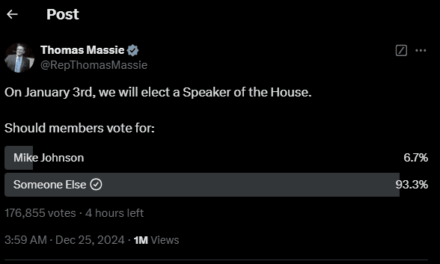We support our Publishers and Content Creators. You can view this story on their website by CLICKING HERE.
Researchers at a Bill Gates-funded university have discovered a way to use mosquitos to inject vaccines into potentially unsuspecting humans.
Backed by the Bill Gates Foundation, researchers at the Leiden University Medical Center in the Netherlands have specifically found a way of using genetically modified mosquitos as “flying vaccinators.”
BREAKING: Bill Gates-funded researchers at Leiden University Medical Center have developed a new method of delivering malaria vaccines using genetically modified mosquitoes as “flying vaccinators.” pic.twitter.com/m89X9MlFBd
— Leading Report (@LeadingReport) December 31, 2024
This method of vaccination is documented in a new New England Journal of Medicine study concerning the effectiveness of using mosquitos as “flying syringes” to innoculate people specifically against malaria (for now).
According to the study, the malaria vaccine being used employs a weakened strain of the parasite that causes malaria.
“We have removed an important gene in the malaria parasite, still allowing the parasite to infect people but not making them sick,” study co-author Meta Roestenberg said.
Usually, this parasite enters the body through a mosquito bite.
“The mosquito uses its long, needle-like mouth (called a proboscis) to pierce the skin, injecting its saliva into the bloodstream before sucking blood,” according to Al Jazeera.
“Parasites in the saliva travel directly to the liver, where they rapidly reproduce, before leaving the liver to infect red blood cells with malaria. This leads to symptoms such as fever, chills, and sweating,” the outlet notes.
But in the study, researchers had mosquitos carrying a weakened version of the parasite bite study participants. This way they were able to take advantage of a mosquito’s natural behavior to deliver their vaccine.
“Because the gene [is] turned off, this parasite cannot complete its development in the liver, cannot enter the bloodstream, and thus cannot cause disease symptoms,” Roestenberg said. “At least that was the theory.”
Well Bill Gates funded research to use live mosquito’s to give anti malaria vaccineshttps://t.co/iBI6dCOjyD pic.twitter.com/2CiRvLAR5j
— Natalie Carmody (@NatalieCarmody) January 1, 2025
The study involved two trials.
“The first trial tested an injectable malaria vaccine derived from a genetically modified parasite known as PfSPZ GA1,” Al Jazeera noted. “The collaborative study with Sanara, a US-based biotechnology company that develops vaccines, involved 67 participants from two cities in the Netherlands (Leiden and Nijmegen).”
The results, published in 2020, were disappointing: The vaccine was safe to use and did delay the onset of malaria but didn’t stop study participants from contracting the disease.
The second trial involved both the GA1 parasite and a modified version of it known as GA2.
“With the GA1 vaccine, the parasite replicated in the liver over 24 hours,” according to Al Jazeera. “With the GA2 vaccine, the parasite reproduced over a longer period of time – up to a week – which allowed the immune system more time to recognize and begin fighting it.”
The final results showed that only 13 percent of those bitten by the GA1-carrying mosquitos developed malaria immunity, whereas 89 percent of those bitten by the GA-2 mosquitos developed it.
Despite the success of the study, Roestenberg admits that the real-world application of the study will be difficult to pursue.
“Using the mosquito as a vector is an easier and quicker way of delivering malaria sporozoites,” she said. “Of course, this is not sustainable in the long term, and so the product will have to be developed as a viable vaccine to be rolled out in Africa. Mosquitoes could not be implemented to deliver immunizations on a large scale. This is only feasible in the context of a clinical trial.”
Another issue to consider is the moral/ethical factor. Many on social media have raised concerns that using mosquitos to vaccinate potentially unsuspecting humans would be a violation of rights.
Look:
This would be an international crime and could be considered an act of terrorism.
— Steven Laurvick (@slaurvick) January 1, 2025
It’s a violation of our Constitutional rights and anyone doing this should face jail time and civil penalties as well.
— Peter Nelson (@NelsonAdvisors) January 1, 2025
You’re letting some novel genetically modified mosquito out into the environment. What could possibly go wrong?
— Callum Barclay (@RealCallumB) January 1, 2025
Sounds like they just came up with a new flying injection method that will inject people with whatever the elites want without the consent of the people.
— Patrick W. McMahon (@mepatuhoo) January 2, 2025
No it’s evil and goes against everything that’s America! It would be an act of terrorism if allowed and treason if the government knows or approves and doesn’t stop this from happening!
— Kimberly A. (@heyitkb) January 1, 2025
We have no tolerance for comments containing violence, racism, profanity, vulgarity, doxing, or discourteous behavior. If a comment is spam, instead of replying to it please click the ∨ icon below and to the right of that comment. Thank you for partnering with us to maintain fruitful conversation.

 Conservative
Conservative  Search
Search Trending
Trending Current News
Current News 




